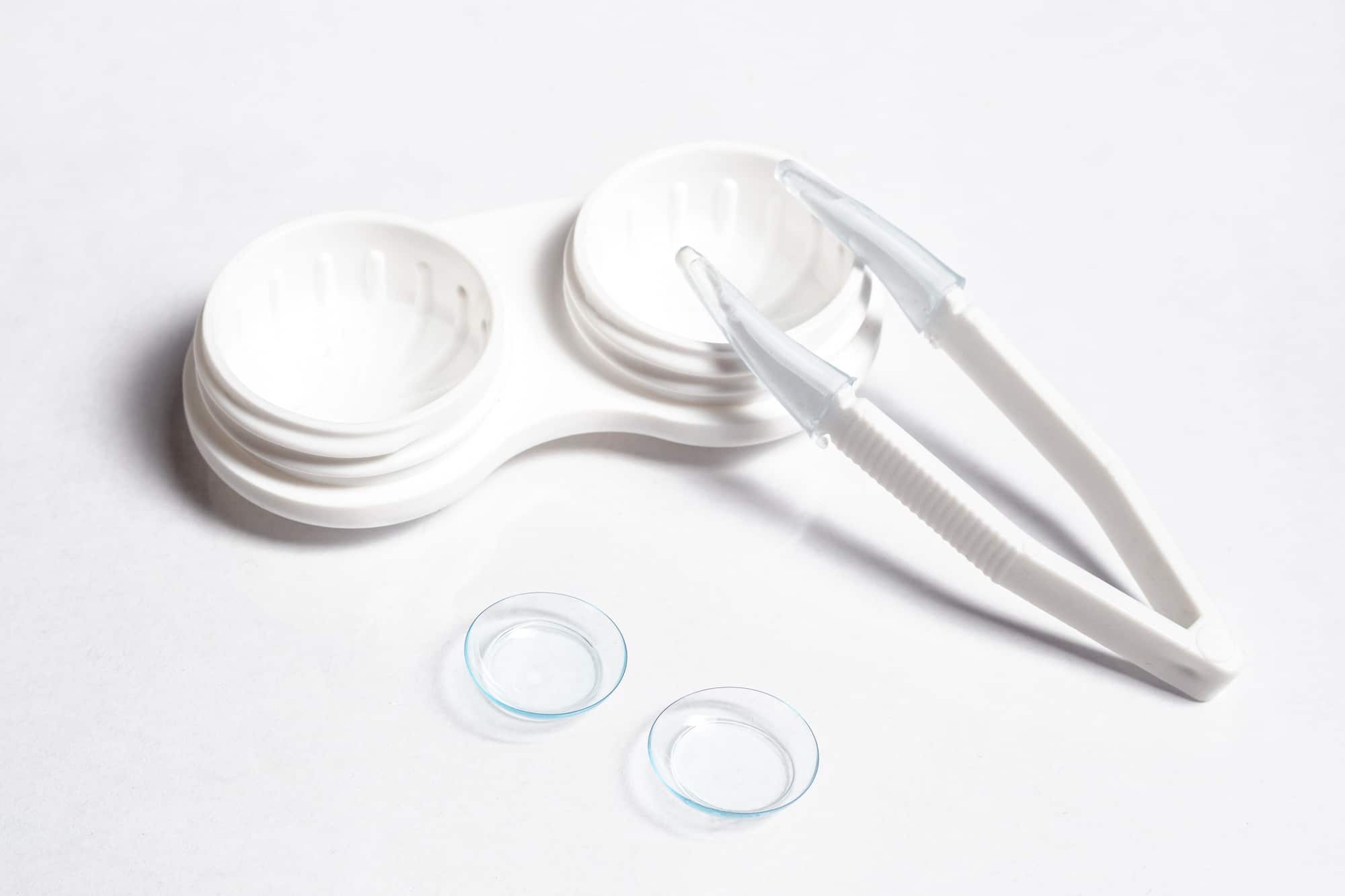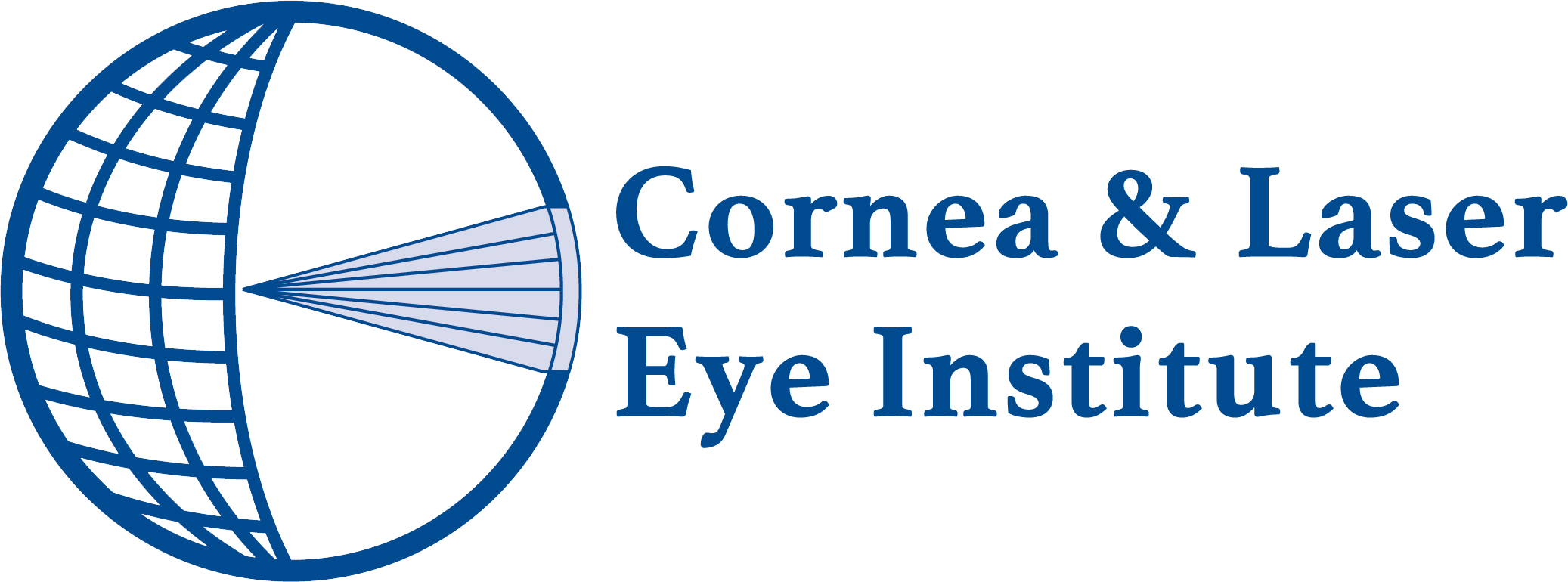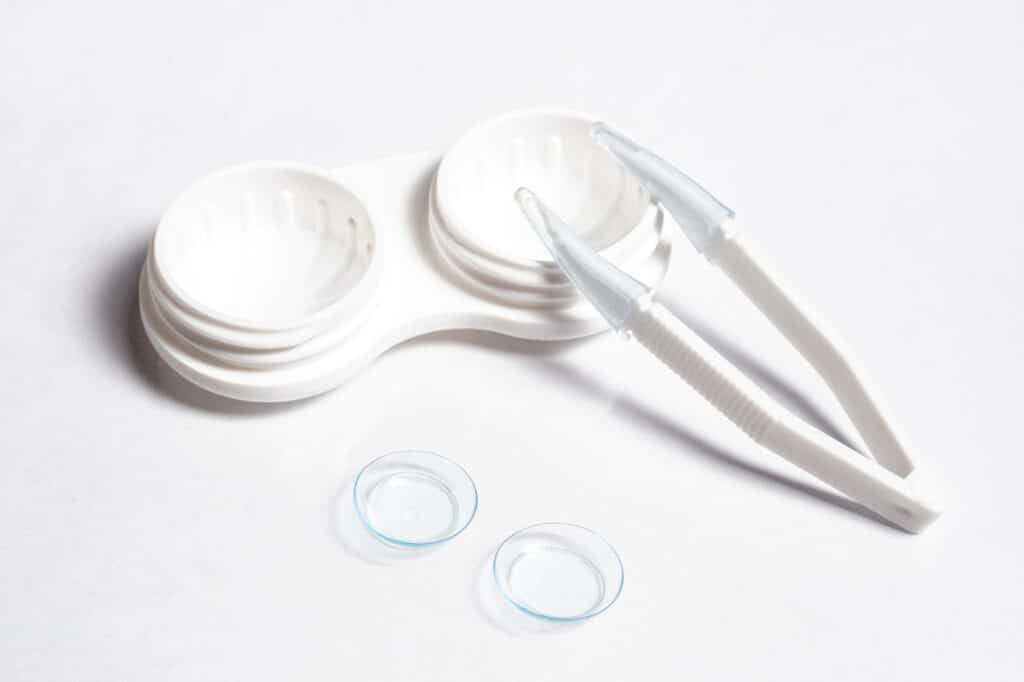
Keratoconus is a progressive eye condition affecting corneal shape. Keratoconus is primarily caused by a focal weakness in the collagen that makes up the cornea. This weakness causes the cornea to thin and bulge into a cone-like shape. It’s similar to a weak spot on a soccer ball or basketball. The weak point stretches and bulges out creating a bump. Without intervention with crosslinking, patients with keratoconus will likely progress, and with increased irregularity of the corneal shape comes increasingly distorted vision. This can have a significant impact on a patient’s daily life and activities. For this reason, maximizing vision is key to improving quality of life.
Achieving improved vision is possible both surgically and non-surgically for keratoconus patients. For most people with keratoconus, keratoconus contact lenses are an excellent non-surgical option and provide the best quality of vision possible for the individual. Let’s delve into the prescribing process and the different kinds of contact lenses which are available to keratoconus patients.
Designing Specialty Contact Lenses for Keratoconus
At the Cornea and Laser Eye Institute, we are at the forefront of advancing keratoconus contact lens technology and techniques for designing and prescribing specialty contact lenses for keratoconus patients.
Creating a personalized contact lens for a patient with keratoconus begins with a thorough evaluation to determine a patient’s unique requirements. Various scans, examinations, impressions, and diagnostic lenses aid in this process. Once the suitable lens type is identified, our doctors design a custom lens tailored specifically for each patient. Our doctors are true specialists in the contact lens field, recognized world wide for their expertise.
Drawing upon our expertise as both practitioners and developers, we determine the optimal approach to ensure your lens fits comfortably, maintains eye health, and provides the best possible vision through several revisions or modifications as needed. Patients have come to us from around the world seeking a solution. If you’ve been told you cannot be fit with a soft lens, hard lens, RGP, or scleral lens, or that you require a corneal transplant, don’t give up hope. Our contact lens specialists have successfully fit numerous patients in similar situations. Today there are multiple solutions available to patients with keratoconus. Let’s explore the options.
Contact Lenses for Keratoconus: Soft and Rigid Lens Options
Standard Soft Lenses for Keratoconus
Standard soft lenses are produced on a large scale through cast molding. These lenses cater to the average shape, size, and refractive needs of a typical eye. While they are highly effective for most individuals with uncomplicated corneas and average refractive errors, patients with moderate to advanced corneal irregularities often encounter challenges with these off-the-shelf lenses. Still, in many cases, our CLEI contact lens specialists can successfully fit individuals with early to mild keratoconus and refractive errors using standard soft lenses with great results.
Custom Soft Contact Lenses for Keratoconus
Unlike regular soft contact lenses, custom soft contacts are lathe-cut to custom specifications. They can be made in a wide range of materials, base curve radius, and diameters. They can also be made in nearly endless refractive powers. We can also add cosmetic or prosthetic options to custom soft contact lenses to improve cosmesis and issues with glare. Another benefit of custom soft lenses is that, if needed, we can increase the thickness significantly. This gives the lenses a kind of pseudo-rigidity, which is good for masking corneal irregularities. Success with this kind of lens depends on the severity of a patient’s keratoconus. However, custom soft lenses have proven to be an effective solution for many patients who were unable to tolerate corneal GP lenses. They are often more comfortable and may provide adequate vision.
Corneal Gas Permeable (GP) Lenses for Keratoconus
These lenses are sometimes called hard lenses, rigid lenses, or RGP (rigid gas permeable) lenses. When corneal surface irregularities are present, corneal GP lenses are the classic choice to mask them and improve visual acuity. These too are lathe-cut and ultra customizable when it comes to base curve radii, diameters, materials, and refractive powers.
Precision is key when it comes to fitting custom corneal GP lenses. A good fit ensures corneal integrity and lens comfort, but this can become increasingly challenging as the corneal surface becomes more irregular. Success with this kind of contact lens in keratoconus patients will depend on the location and severity of the corneal irregularities.
Piggyback Lens System for Keratoconus
When a RGP is the best option for vision correction, but it causes reduced comfort for the patient or minor damage to the surface of the cornea, a piggyback lens system may be a good solution. This approach uses a GP lens for vision correction, and an underlying soft lens for corneal protection and improved comfort. To simplify care, many patients can use disposable standard soft lenses as the underlying lens. In some cases, however, a custom soft lens option, such as a cosmetic/prosthetic soft lens or a soft lens with a central excavation, which allows the GP lens to rest in a depression in the soft lens surface, is needed to reduce glare, improve cosmesis, or improve lens centration.
Hybrid Lenses for Keratoconus
Custom hybrid lenses have a rigid GP center with a soft lens edge. There are multiple hybrid designs available, with a variety of geometries to accommodate mild to moderate keratoconus. In cases of lens decentration or lens intolerance, hybrid contacts can offer improved centration and comfort over corneal GPs. Hybrid contacts are filled with saline prior to application, similar to a scleral lens. However, because of the soft edge, patients must pay special attention to the amount of force used to apply these lenses to avoid issues while wearing them.
Scleral Lenses for Keratoconus
When keratoconus is advanced, scleral lenses are often the preferred kind of contact lens. Scleral lenses rest on the sclera and vault over the cornea, offering greater comfort than traditional RGP or hard lenses. They can effectively address almost any corneal irregularity, making them a viable alternative before considering corneal transplantation. These customized lathe-cut lenses can be made in a wide variety of shapes, sizes, materials, and refractive powers. To achieve the best possible fit, we utilize every option available, whether its use of a diagnostic scleral lens set, profilometry scan design or impression based scleral lens designs. Wavefront guided optics, optical prism, and multifocal optics can be added to these lenses to address your unique concerns and to make vision clearer, more comfortable or to give you less reliance on reading glasses.
Conclusion
Doctors’ expertise is not all the same. The doctors at CLEI are world renowned experts in keratoconus contact lenses. They have the greatest depth and breadth of experience to not only design custom contact lenses for the best outcome possible, but also to comprehensively manage keratoconus offering the most advanced treatments available. Additionally our team of experts are supported by the most advanced technology allowing us to use advanced software driven, scan, impression, or wavefront guided design techniques to achieve an improved visual quality and a comfortable fit for the patient. If you’ve been diagnosed with keratoconus and are interested in pursuing contact lenses, schedule an appointment at the CLEI Center for Keratoconus.





